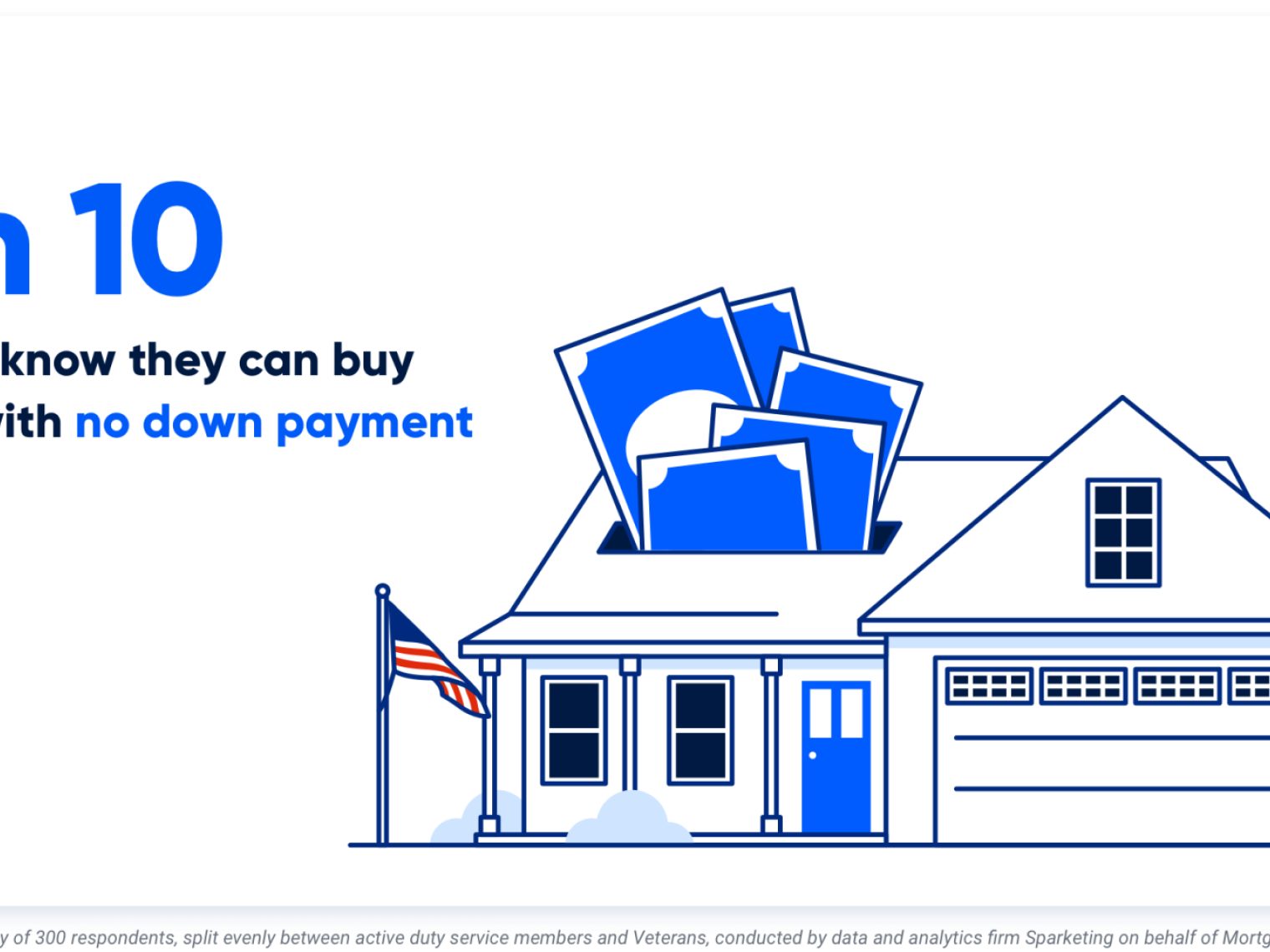Need a study guide along the way? Let’s take a look at eight things buyers and agents must understand about the VA appraisal.
1. VA Appraisals are Mandatory
You’ll have a lot of choices to make on your homebuying quest. But if you’re using a VA loan, you can’t choose to opt out of the VA appraisal.
Every home purchased with a VA loan must be evaluated by a VA-certified appraiser. Your VA lender requests and schedules the appraisal, and informs you once the appraisal report is complete.
2. The VA Appraisal has Two Purposes
The VA appraiser has two tasks:
- Determine the home’s fair market value. Your lender needs to know the market value for the property in question. The market value helps buyers ensure they’re not overpaying for a property and helps lenders ensure they’re not putting borrowers in an “upside-down” mortgage from the start. The appraiser uses current market data and recent sales to determine this value for each property.
- Ensure the property meets the VA’s Minimum Property Requirements (MPRs). The VA has a unique list of MPRs to which all properties must adhere. Those broad guidelines ensure that homes purchased by veterans are safe and move-in ready.
3. The VA Appraisal Fee is Often Required Upfront
Buyers will usually need to pay for the appraisal upfront. Appraisal fees vary by state of purchase and type of home (single-family vs. condo vs. manufactured home), but plan for $600 or more. You can try and recoup this fee at closing as part of your negotiations with the seller.
4. VA Appraisals Often Get Completed within 10 days. But Plan for More.
Ten days is the typical timeline to complete a VA appraisal. However, turn times vary from one area to the next, and the unprecedented volume in recent years may set your timeline back.
The VA issues appraisal “timeliness requirements” for each state, but they’re more guidelines than actual requirements. In addition, if repairs are required, the appraiser will have to come back out for a re-inspection, so plan on additional time when calculating your closing date.
Read more: What Can I Do to Speed the VA Appraisal Process Along?
How Long is a VA Appraisal Valid?
The VA appraisal is good for six months from the effective date of the appraisal for refinance loans or until the loan closes for purchase loans.
5. The VA Appraisal is not a Guarantee that Your Home is Perfect.
The VA appraiser ensures homes are:
- Safe
- Structurally sound
- Sanitary
Notice the word “perfect” is not on that list. It’s never been the VA appraiser’s responsibility to promise you’re buying a blemish-free property. The home does need to meet basic livability standards, but make no mistake: costly repairs could pop up any time after you sign those closing documents.
And that’s why you need to also remember the following point:
6. The VA Appraisal is not a Home Inspection.
The VA appraiser will carefully measure your property against MPR criteria, which you can learn more about here. Still, a professional home inspector typically performs a much more in-depth, comprehensive investigation.
While the VA appraiser rarely ventures outside the bounds of the MPR checklist, a good home inspector will thoroughly describe every deficiency noted on the property. The inspector documents findings with photos, makes recommendations and may estimate the cost of needed repairs.
The professional home inspection report is an excellent tool for renegotiating a purchase contract and should never be skipped. Some buyers prefer to have the home inspection first before deciding whether to move forward with a VA appraisal.
7. The VA Appraisal Could Send Your Purchase in a Different Direction.
Typically the VA appraisal is completed quickly without complications. However, that's not always the case, and it's important to recognize that the results of the VA appraisal could send a purchase down a different track. Consider these potential challenges:
- The property doesn’t meet MPR criteria. If the appraiser requires repairs to bring the home up to MPR standards, buyers have a few options to consider. They can negotiate with the sellers to make the repairs; they can look into paying the repairs themselves or walk away from the purchase.
- The appraisal value falls short of the loan amount. If the appraisal value is below the target loan amount, buyers again have a choice to make. Buyers can:
- Ask the seller to lower the purchase price
- Make up the difference in cash
- Walk away from the purchase
- Petition the VA for a Reconsideration of Value
8. The VA Appraisal Doesn’t Have to be Intimidating.
Even though the VA appraisal can have a drastic impact on a home purchase, there’s no need to fear this process unless you’re unprepared.
Poor knowledge sets a potential VA homebuyer up for disaster. If you’re planning on any of the following, you could be in for a rough road:
- Purchasing a fixer-upper
- Buying farm land
- Purchasing a vacation home
- Buying an ineligible investment property
- Buying without a real estate agent
- Working with an inexperienced VA lender
But if you’re familiar with VA MPR criteria, you're working with a knowledgeable real estate agent and have partnered with a skilled VA lender, get set for a rewarding venture. You’re well on your way to the plethora of benefits afforded by VA home loans, including 100 percent financing, no private mortgage insurance, flexible credit standards and low closing costs.
How We Maintain Content Accuracy
Veterans United often cites authoritative third-party sources to provide context, verify claims, and ensure accuracy in our content. Our commitment to delivering clear, factual, and unbiased information guides every piece we publish. Learn more about our editorial standards and how we work to serve Veterans and military families with trust and transparency.
Related Posts
-
 VA Loan Down Payment RequirementsVA loans have no down payment requirements as long as the Veteran has full entitlement, but only 3-in-10 Veterans know they can buy a home loan with zero down payment. Here’s what Veterans need to know about VA loan down payment requirements.
VA Loan Down Payment RequirementsVA loans have no down payment requirements as long as the Veteran has full entitlement, but only 3-in-10 Veterans know they can buy a home loan with zero down payment. Here’s what Veterans need to know about VA loan down payment requirements. -
 5 Most Common VA Loan Myths BustedVA loan myths confuse and deter many VA loan borrowers. Here we debunk 5 of the most common VA loan myths so that you can borrow with confidence.
5 Most Common VA Loan Myths BustedVA loan myths confuse and deter many VA loan borrowers. Here we debunk 5 of the most common VA loan myths so that you can borrow with confidence.

